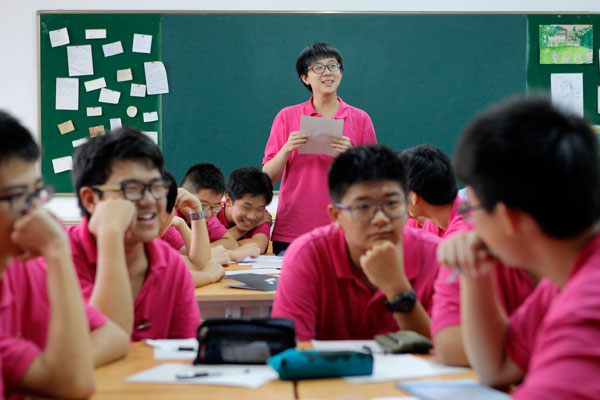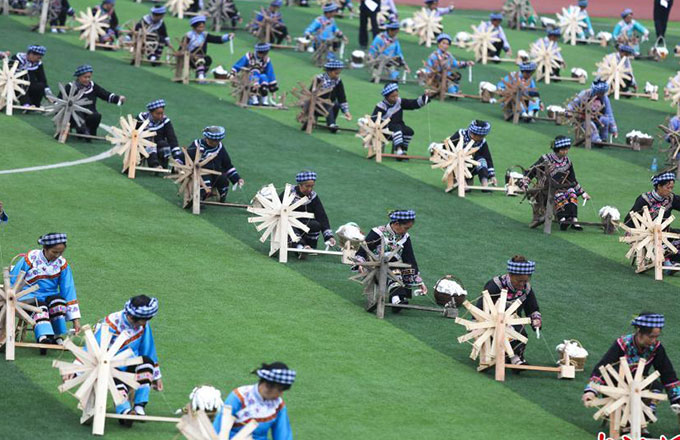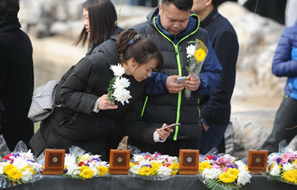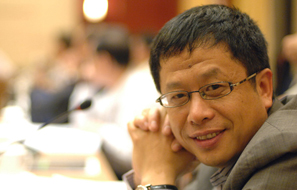Shanghai's all-boys classes to double enrollment
The operator of Shanghai's first all-boys classes plans to expand enrollment for the new semester as one of its founders hailed the once-controversial program a success.
After eight months of operation, Shanghai No 8 High School gained approval from parents for the two boys-only classes and plans to double enrollment to 120 students for the semester starting in September.
The classes are a pilot program of the Huangpu district education bureau and East China Normal University, as they attempt to address the tendency of boys to be outperformed and overshadowed by girls in school.
 |
|
Shanghai No 8 High School is the only all-boys school in the city. Gao Erqiang / China Daily |
On Wednesday, more than 200 parents and their children showed up at a consultation meeting for enrollment at the school, and they crowded into an auditorium. Many brought application materials and all kinds of certificates with the hope of getting their boys into the program.
Earlier, hundreds of parents had paid visits to the school for an on-site inspection.
The focus of parents' attention has also shifted. When the idea of all-boys classes was presented last year, a heated topic was whether the lack of contact with girls would adversely affect the boys.
But on Wednesday, many had dropped their previous concerns and went straight to the question of whether their children are excellent enough to qualify, and what special courses and opportunities are available at the experimental classes.
"Aimed at boys, the classes are able to bring their advantages to full play," a parent surnamed Xu was quoted as saying to the Metro Express on Thursday. She said her son had started feeling inferior because the girls are outperforming boys in academics in the junior high school.
Calling the classes' operation in the first period a success, Lu Qisheng, the school's principal, said on Thursday that the classes do not aim to train everyone into an elite student but to make students do their best within their capabilities.
"Talent and ability vary among students, and only a small group of them can be elite," he told China Daily. "What we try to do is have boys do their best and get to the upper limits within their range of capability."
As such, two criteria are attached to whether the boys have achieved their potential.
One is having the initiative to gain knowledge rather than receiving it passively from teachers, Lu said. The other is understanding planning and self-management.
The first group of 60 students have shown progress in both areas, he said. "For example, students have adopted a different attitude toward others' criticism. In the past, they may get irritated by or turn a deaf ear to the criticism because of the adolescent psychological inversion.
"But now they will treat it as an 'assistance' that will make them do better," Lu said.
As for the concerns of lacking communication with girls, Lu said he and many parents were worried needlessly.
"Boys told me they have more channels to communicate with girls than I thought," Lu said. "One boy goes to next-door classes to tell girls stories, while another is keen to show girls how to dance."
Boys also made progress in their academic performances. Lu said that among the top 20 students in the grade with best academic performances, eight were from all-boys classes at the beginning of last semester, and that number grew to 14 by the end of the semester.
All of these will help with the school's enrollment, which will start on Saturday, he added.



















